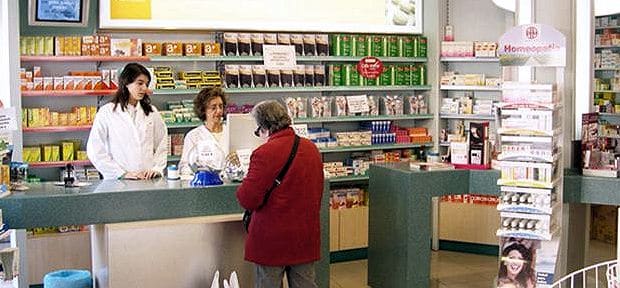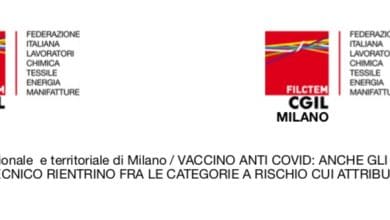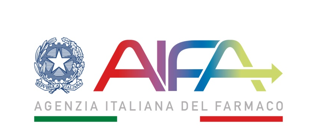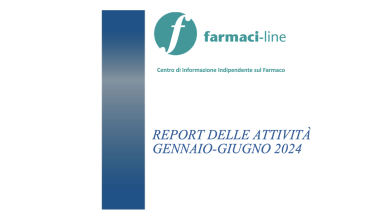
by Lentano Ciro November 1, 2014 – quelchefarmacia magazine
 Between the health policies aimed at saving costs, also in the international arena, the frequent use of drugs equivalent represents one of the primary policies, so much so that it has pushed for the definition of the legislation which since 2012, as a legal obligation, forces pharmacists to present the generic analogue of a branded medicine to the user. Although we often talk about conveniences for the class of pharmacists, in reality it is Doxa study would reveal a paradoxical and contrary situation with the professionals inclined to favor the branded for safety issues bioavailability and therapeutic efficacy.
Between the health policies aimed at saving costs, also in the international arena, the frequent use of drugs equivalent represents one of the primary policies, so much so that it has pushed for the definition of the legislation which since 2012, as a legal obligation, forces pharmacists to present the generic analogue of a branded medicine to the user. Although we often talk about conveniences for the class of pharmacists, in reality it is Doxa study would reveal a paradoxical and contrary situation with the professionals inclined to favor the branded for safety issues bioavailability and therapeutic efficacy.
The situation would obviously be the result of the scarce information campaigns that on the comparison between drugs equivalent and branded have failed to provide an adequate level of ed education information to users, who have however shown themselves to be equally careful to evaluate the impact with their own means. In particular, data in hand, the Italians are now more and more convinced of the usefulness of the biosimilar so much that the 92% makes constant use of it and the 80% declares itself satisfied with the service and quality provided in the therapeutic field. Although i data the study is growing, which has also addressed the evaluation and professional consideration of pharmacists, a greater orientation towards the would emerge branded, capable of providing greater guarantees in terms of release and share of active principle available, as confirmed by data of exchange dropped from the 58% of 2012 to the 53% of 2013.
She intervened on the matter, expressing her opinion, Pia Policicchio who explained how much on equivalent drugs there was bad conduct information campaign capable of generating complex beliefs to be eradicated, on which the greatest perplexities are based, although the comparison with the Healthcare systems foreign now become synonymous with quality is helping to strengthen and improve the image of generics, the latter in which their use is strongly consolidated: “…there was talk of generic – explained the president of Fenagifar – as an economic alternative without dwelling on the therapeutic response and the need to give the public certainties of equivalence with respect to the originator». From here perhaps die-hard convictions arose“.
– See more at: http://quellichelafarmacia.com/19035/farmaci-equivalenti-sfiducia-parte-dei-farmacisti-i-dati-studio-doxa/#.VFX5QvmG98E
Prevention and equivalent medicines: behaviors in support of sustainability
By Except Francina on October 30, 2014 – Liquidarea.com
 A Doxa survey, commissioned by Teva Italia, was presented today in Milan, which highlights the spontaneous perception of the concept of personal and civil responsibility of Italians when it comes to a more sustainable system of care. And the need for more and more correct information.
A Doxa survey, commissioned by Teva Italia, was presented today in Milan, which highlights the spontaneous perception of the concept of personal and civil responsibility of Italians when it comes to a more sustainable system of care. And the need for more and more correct information.
Milan, October 30, 2014– The historical era in which we live is certainly not the easiest: the particular economic situation has determined the need to pay greater attention to the issue of sustainability. If we talk about Health, then, the mechanism becomes even more complicated because the concept of sustainability it declines not only in the representation of "savings of the public system", but also in that of "personal advantage". The Italians identify in the “prevention” and in the use of “drugs equivalent”two effective tools to combat waste and guarantee the National Health Service sustainability and efficiency.
To say the qualitative/quantitative survey of Doxa,"Sustainabilityof treatments, who is responsible?”, presented today in Milan and commissioned by Teva Italia, a leading company in the pharmaceutical sector, which has always been committed to making high-quality care accessible through the development, production and marketing of both equivalent both of drugs innovative, pharmaceutical specialties and active ingredients.
The research examined a sample made up of 600 subjects, men and women aged between 18 and 64 years. The results showed that there are mainly four attitudes among Italians referring to sustainability of care: the figure of “participatory”, or the one who optimistically believes he can "do a lot through his own attitude and daily behavior", that of the"angry"who believes "that they are already doing a lot through taxes and who expect a greater commitment from doctors, pharmacists and institutions", the”self-indulgent”, convinced "that I can do very little as an individual" and the"fatalistic", “convinced that “it is useless to bother looking for solutions because in the Italian system things never change”. It is very important to highlight explainsMassimo Sumberesi, Managing Director of Doxa Marketing Advice that among these archetypes, it is not only the participatory who has an active role, but in some way also the angry, although his energies are concentrated in the invective and are hetero-referred”. He continues: "In contrast, the self-indulgent and fatalist have a passive and pessimistic attitude, justifying themselves and/or generally blaming the system for malfunctioning." He adds: "With the exception of participatory participants, the tendency to identify responsibility for what does not work in third parties prevails".
In general, however, the Italians believe that the "wasting of resources by the public administration" (64%), the "poor social equity" (63%) and the "opportunism and lack of honesty of those in power" (59%) are the main threats to sustainability of the system. In fourth place we also find “the high cost of drugs”. “This is an aspect that directly involves pharmaceutical companies,” he saysHubert Puech d'Alissac, CEO of Teva Italy "in reality, it should be emphasized that the scientific progress recorded in the last 50 years has been enormous and often possible thanks to the commitment and resources invested by the pharmaceutical industry". He continues: “In addition, the companies that produce drugs equivalent, have been able to save the Italian health system €1.5 billion in the last 6 years. Teva in particular is an example of a reality that, in addition to making treatments with i drugs equivalent continues to engage and invest in research and development to create new therapeutic solutions and innovative specialty products.”
Just the use of drugs equivalent it was then indicated by the sample as one of the "virtuous behaviours" to guarantee more accessible treatments for all. 29% of the interviewees thinks so, while 38% believes that "the health authorities should carry out more checks on the SSN" and 30% that "a greater prevention, especially if we are talking about certain diseases”.
Italians, in particular, are asking for more information on the equivalent drug: although the trend in the consumption of generics is growing, 26% of the sample interviewed claims "that he has never talked about it with his own doctor"Pharmacies are not doing better: in fact, compared to 2013, the percentage of pharmacists (from 58 to 53%) who "often or with a certain frequency" propose the replacement of the brand name with its equivalent has dropped.
In general, however, compared to last year, the dissemination and, therefore, the culture relating to drugs equivalent has not recorded substantial variations, and therefore a strong awareness on the part of the institutions becomes important.
Indeed, it is no coincidence that the Doxa survey highlights how citizens believe that all the players in the health system - citizens, patients, family doctors, specialists and pharmacists - need more information, which must be provided from different sources according to of the person involved.
For example, both general practitioners and pharmacists should receive correct information mainly from "hospital structures and local health authorities", "government and political bodies" and "local public administrations".
“The survey shows that there are still many misconceptions about drugs with a generic name and that, therefore, a lot of information is still needed”, he explains Silvio Garattini, scientist and researcher in pharmacology, director of the “Mario Negri” Institute for Pharmacological Research.
Agree with him too Giuseppe Nielfi, president of the Single Union of Italian Outpatient Medicine and Healthcare Professionalism (SUMAI): “Adequate information is increasingly needed at all levelsto overcome prejudices e so that news not complete or even wrong do not negatively impact the health of citizens and the work of white coats". And he adds: “With the diffusion of information 2.0,” continues “Doctor Web it is stated increasingly as first referent of patients of all ages and as a vehicle for the training of health professionals.”
“The role of the pharmacist is an essential role to guarantee prevention and accessibility to drugs on the territory” he confirms Claudio Di Stefano, past president of the National Federation of Young Pharmacists Association (Fenagifar)"However, our commitment is not always sufficient: in fact, guidelines and tools capable of protecting the pharmacist's work day after day must be dictated at a central level".
Finally, for citizens, it is not only the institutions that have to guarantee greater information, but they want to receive it above all from family doctors (65%), pharmacists (24%) and from the media (34%).
TEVA
Teva Pharmaceutical Industries Ltd. (NYSE: TEVA) is one of the world's leading pharmaceutical companies. It is committed to increasing access to quality healthcare through the development, manufacturing and marketing of drugs affordable generics, as well as of drugs innovative and specialty products and active pharmaceutical ingredients. Based in Israel, Teva is the largest manufacturer of drugs equivalent in the world, with a global product portfolio of over 1,000 molecules and a direct presence in around 60 countries. As for i drugs innovations, Teva focuses its development activities in the areas of neurological diseases, pain, oncology, respiratory diseases and women's health, as well as in the area of drugs biotechnology and biosimilars. Teva employs approximately 45,000 people worldwide and reported $20.3 billion in net revenues in 2013.
Generics bring down pharmacy profits
Profits of Italian pharmacists down, even if only slightly. In the first nine months of 2014, compared to the same period last year, Italian pharmacies recorded a loss of 0.3% in turnover against an increase in consumption of 0.9%.
A trifle, except that it seems the first step in a trend destined to consolidate. The average values, in fact, hide a datum of particular interest. The profits of branded drugs decreased (mutable ones by 2.9% and non-borrowable ones by 2.1%), but those deriving from generics grew by almost 8%.
Another trend is the shift of pharmacy profits from the actual drug to what is defined as the commercial area: non-prescription drugs but above all parapharmaceuticals. In this sector, dietetic foods grew by +5% thanks to the driving force of supplements, phytotherapy rose by +7.6% and veterinary by +8%.
The data is contained in a survey of 5,000 pharmacies conducted by New Line Ricerche di Mercato.





